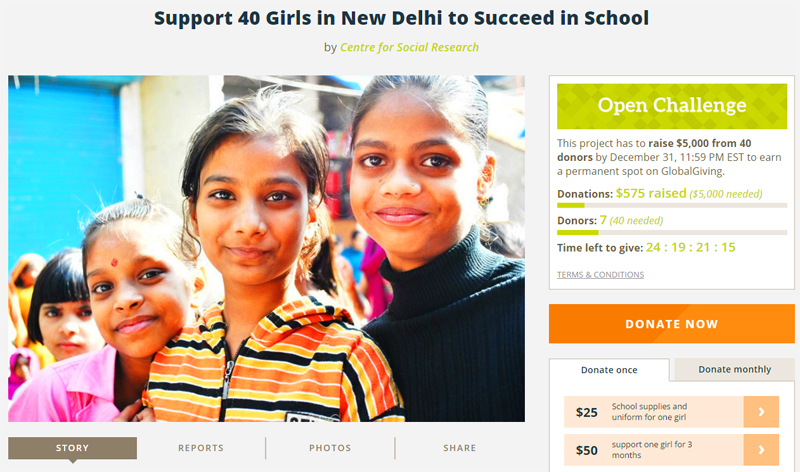“Betiyan toh paraya dhan hai”
Perhaps the most used statement in India, it is unlikely that one has escaped from hearing this. Perhaps it was this statement which led to the Supreme Court recently giving out a judgement stating that a husband can divorce his wife if she tries to separate him from his parents. While there are many clauses to the judgement, the mere fact that such a statement can be made in the legal domain is reflective of the excess of negativity associated with the birth of a girl child, and the inherent preference for a boy child.


Currently, Hindus across the country and the world are celebrating the Navaratras- nine days of worshipping various feminine forms of the Almighty. Ironical that while every year for nine days women are celebrated and goddesses are venerated, the cases of sex selective abortion, dowry deaths, violence against women, sexual harassment, also increase exponentially, each and every year.
It is not just India, but the problem of gender based discrimination persists across the world, in developed and developing countries alike. Perhaps it is with this realization that on December 19, 2011, United Nations General Assembly adopted Resolution 66/170 to declare October 11 as the International Day of the Girl Child, to recognize girls’ rights and the unique challenges girls face around the world. The International Day of the Girl Child focuses attention on the need to address the challenges girls face and to promote girls’ empowerment and the fulfillment of their human rights. Every year, there is a theme associated with the day, and the events held in this regard.
2012- Ending Child Marriage
2013- Innovating for Girls’ Education
2014- Empowering Adolescent Girls: Ending the Cycle of Violence
2015- The Power of Adolescent Girls: Vision for 2030
2016- Girls’ Progress = Goals’ Progress: What Counts for Girls


At CSR, we have been devoted to the cause of women empowerment since inception. Through our various programs- Kanya Janm Mahotsav (which celebrates the birth of girls), the #SoSEC application which provides a comprehensive list of welfare schemes available to girls and women in Delhi, being a nodal agency for the Government’s Beti Bachao Beti Padhao initiative, our efforts at curbing pre-natal sex selection, our initiative for educating girls via Global Giving, and many others- we have maintained that empowering girls is one of the first steps to empowering women, and creating a gender just society.


India, as a society, is essentially male dominated and the preference for a son, is widespread, prevalent in every strata and region of the country. Thus, it becomes imperative that governmental organizations, NGOs and civil society, comes together to bring about a change in this mindset, and truly make our society gender equal, and gender sensitive.
This girl child day, let us all pledge to truly celebrate girls!
Discuss this article on Facebook



